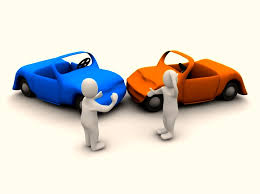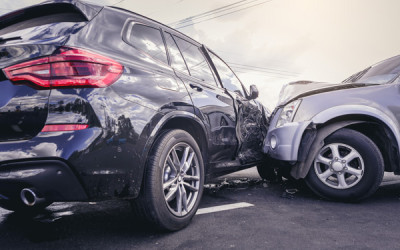Minor Impact, Major Injury Explained…

As Nova Scotia car accident lawyers, we have helped many people who suffered serious injuries because of a car accident. Some of these accidents happened at low speeds, where there is little to no damage to the cars involved. And yet, the passenger goes on to suffer a major injury; one which causes a major impact on their life.
Many people are under the mistaken belief that only high speed collisions can cause serious injuries. These people think that passengers in a car accident that only results minor damage cannot not possibly be seriously injured. This is far from the truth however. An ever-increasing amount of medical and scientific studies have conclusively established that in many cases, even when the speed of the car is slow, like a “fender bender” with little to no damage to the car, minor impacts can cause significant injury and impairment.
While this science is admittedly counter-intuitive, here is the most common explanation: When property damage to the car is minimal, it means the car likely did not absorb the energy from the collision. Rather, that energy was instead transferred to the passengers, increasing the risk of injury. Where the accident results in no give or crush to the car, passengers will experience relatively high “G forces”. Where the car does not absorb the impact, its passengers will experience spiked G force loading, increasing the risk of serious injury.
According to research from Peugeot S.A./Renaust Laboratory of Accidentology and Biomechanics, the risk for whiplash injury is actually greater when the accident occurs at speeds below 9.3 miles-per-hour compared to speeds above it. The Spine Research Institute of San Diego estimates 60 percent of injuries from car accident occur at speeds between 6-12 miles-per-hour.
Research from the Brain Injury Society reveals that these kinds of low-speed car accidents can also result in mild brain trauma. These kinds of mild traumatic brain injuries and concussions are increasingly recognized as a source of brain damage that can cause long-term problems with thinking and memory. They can be permanently disabling.
If you get into a minor accident, you might get headaches, neck, back, or shoulder pain or stiffness; or muscle or ligament strains and sprains. Sometimes these symptoms become apparent at the scene of the accident but more often these symptoms may take a few days to develop. Concussion symptoms following a low impact accident may include dizziness, nausea, and confusion.
If you find yourself struggling with a serious injury following a low speed car accident, know that there is a strong scientific explanation for this. It is recommended that you speak with an experienced car accident lawyer to discuss your options.






















